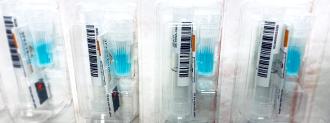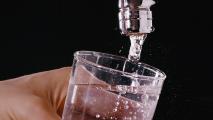For the first time, the U.S. Food and Drug Administration (FDA) has granted emergency use authorization to a saliva test for coronavirus.
The test is not only the first of its kind, but it also has the potential to address a number of issues currently preventing researchers from being able to conduct widespread coronavirus testing — the kind needed to stop the COVID-19 outbreak.
New Saliva Test for Coronavirus
With few expectations, most people in the U.S. are diagnosed with COVID-19 via a nasal swab test.
This process involves a healthcare worker inserting a long sterile swab into a patient’s nasal cavity until it reaches the point where their throat begins (the nasopharynx). The worker then rotates the swab to gather a specimen sample for testing.
This is a rather uncomfortable experience for the patient. It also requires healthcare workers to be in close contact with people who might have the coronavirus, which increases their risk of catching the virus.
Less direct contact with patients means less need to change PPE.
Personal protective equipment (PPE), such as masks and gloves, can mitigate this risk. However, it’s in short supply right now, as are the swabs needed to perform the standard coronavirus test.
This new saliva test for coronavirus — co-developed by Rutgers University’s RUCDR Infinite Biologics, biotech firm Spectrum Solutions, and New Jersey’s Accurate Diagnostic Labs — could eliminate these issues.
Instead of a healthcare worker inserting a swab into a patient’s nose, the test has a patient spit into a plastic tube several times to produce a sample — drastically decreasing workers’ potential exposure to the coronavirus.
“They can be 6 feet away. They can be ensuring they are not close to a potential person who has the virus,” Spectrum Solutions President Stephen Fanning told NBC New York. “Hand it to them and hand it back.”
Rutgers tested 60 people with both its test and the traditional nasal swab. The results matched 100% of the time.
Less direct contact with patients means less need to change PPE.
A saliva test for coronavirus also eliminates the need for nasal swabs altogether — overcoming yet another supply issue involved in the current method of diagnosing patients — and it also appears to be just as accurate as nasal swabs.
When the Rutgers team subjected 60 people to both its test and the traditional nasal swab, the results matched in 100% of cases. An independent test of 10 samples by the New Jersey State Health Department corroborated those results.
Scaling Up COVID-19 Testing
Because patients self-collect samples for analysis, the new saliva test for coronavirus could prove ideal for at-home COVID-19 testing in the future. Currently, however, the FDA is only approving its use under clinical supervision.
Several hospitals in New Jersey are already offering patients the less-invasive coronavirus test, and on April 15, health officials began administering it at a drive-thru clinic at one of the state’s DMV locations.
Fanning told NBC New York that Spectrum Solutions could initially provide one million of the coronavirus tests every month, potentially scaling up to five million soon.
RUCDR COO Andrew Brooks, meanwhile, said in a press release that his lab could process 10,000 samples a day, returning results in 24 to 48 hours — and it’s already looking for partners to increase that capacity.
“I have spoken with (some of the world’s largest life sciences companies) to not only share knowledge but to create opportunities for continuing to help innovate during this crisis,” Brooks said.
“We will work closely with these new partners, the FDA, and the White House task force to leverage everything Rutgers has to offer to not only help our community but also make a global impact,” he continued.





